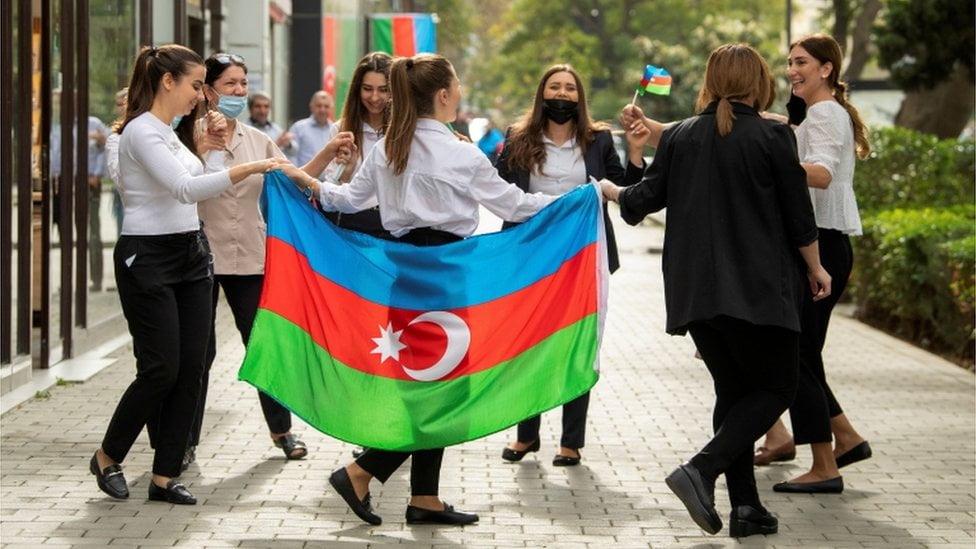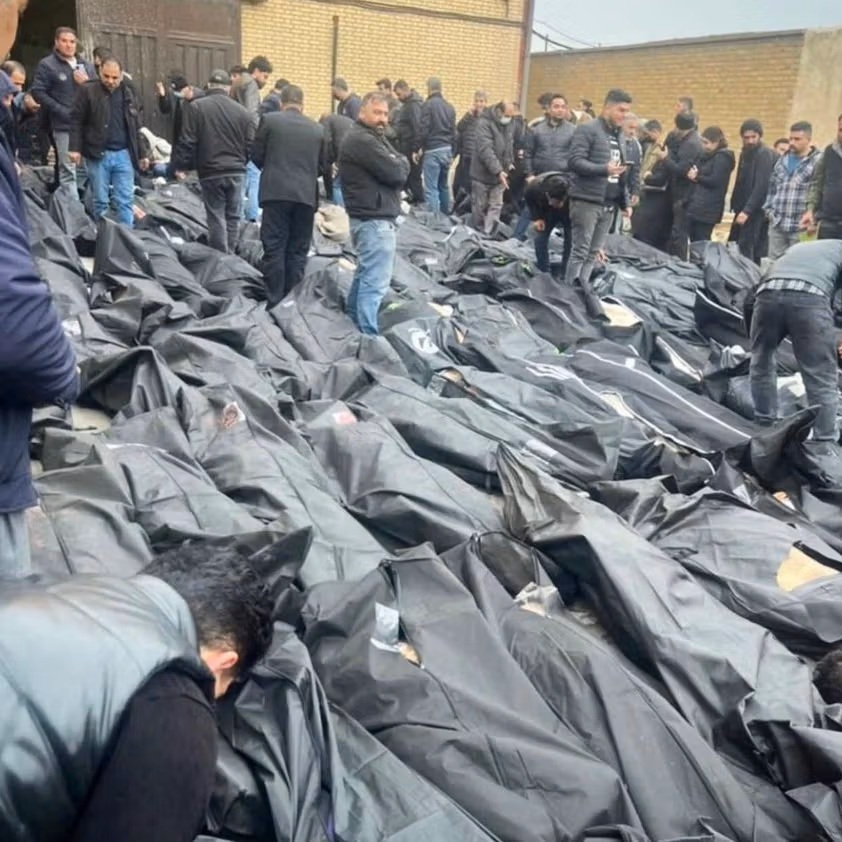
Azerbaijan won the war in Nagorno-Karabakh with the help of its ally Turkey. It's archenemy Armenia did not get similar support from Russia and was forced to sign a humiliating peace deal which is a de facto capitulation.
By Nikola Mikovic
Nagorno-Karabakh, also known as Artsakh, is part of Azerbaijan but has been under control of Yerevan-backed ethnic Armenian forces in the past 26 years. In 1994 the two countries ended a bloody war that started in 1988 and resulted in Armenia’s victory.
Yerevan had enough time to prepare for another round of fight. However, instead of buying modern weapons and modernizing its military, like Azerbaijan, Armenia relied on its long time ally Russia.
The county joined the Collective Security Treaty Organization (CSTO) – which is often described as the Russian equivalent to NATO – hoping that Moscow would protect it from Baku. Indeed, according to Key Article 4 of the Treaty, “if one of the States Parties is subjected to aggression by any state or group of states, then this will be considered as aggression against all States Parties to this Treaty”.
The Kremlin
Even though there were reports of Azerbaijan periodically shelling Armenian villages close to Nagorno-Karbakh, Russia never got involved in the conflict. Moreover, on November 9 Azerbaijan’s Armed Forces downed Russian military helicopter over Armenia, but the Kremlin never responded.
Such a passive Russian position was a clear message to Yerevan that it cannot count on Russia’s support against Baku. Previously, Armenian forces lost significant portion of Nagorno-Karbakh and were on the verge of a military defeat.
On November 9, just hours after the Azeri army shot Russian helicopter, Armenian Prime Minister Nikol Pashinyan and Azerbaijan’s President Ilham Aliyev signed a peace agreement brokered by Russian President Vladimir Putin.
Kremlin propagandists claim that the deal “prevented a complete Armenian defeat”. According to the document, Armenia-backed Artsakh Defense Forces will withdraw from Nagorno-Karabakh, and almost 2000 Russian peacekeepers will be deployed to control Lachin corridor connecting the region’s capital Stepanakert to Armenia.
However, almost the entire population of Stepanakert already fled the city, which means that the self-proclaimed Republic of Artsakh de facto ceased to exist. Thus, the Lachin corridor will not have such an importance for the Armenians as it used to have.
Yerevan not only lost Nagorno-Karbakh, but also a significant section of southern Armenia where the Russians will be escorting Azerbaijani military convoys from the mainland Azerbaijan to its exclave Nakhchivan.
In other words, Russia not only did not protect its ally, but the Kremlin forced Pashinyan to sign a deal that will limit Armenian sovereignty over the road that lies in the south of the country, along the Iranian border.
Russian officials repeated on several occasions that relations with Armenia and Azerbaijan are equally important for the Kremlin. However, it is worth mentioning that the trade turnover between Russia and Azerbaijan reached $3 billion in 2019, which is much higher than the trade balance Moscow has with Armenia.
This could be one of the reasons why Russia threw its ally under the bus. In spite of that, Armenia is expected to remain in Russia’s geopolitical orbit, although Russian influence in Yerevan will likely start declining.
Turkey
At the same time, Turkey will increase its presence in the energy-rich Caucasus region. Although the peace deal does not include Turkish peacekeepers, Baku and Ankara are expected to sign a deal that will allow the presence of Turkish troops not only in Nagorno-Karabakh, but in other parts of Azerbaijan as well.
This could mean that Turks could establish their military bases in the north of the country, right on the border with Russia’s turbulent Dagestan region. Naturally, the Kremlin propagandists will try to portray such actions as Putin’s “magnificent geopolitical victories”, although in reality Russia will keep losing its positions in the Caucasus.
Finally, given that Moscow left its ally in the lurch, and failed to punish Azerbaijan for downing a Russian helicopter, the Kremlin will look weak in the eyes of its numerous geopolitical opponents. In the mid-term, Russia could face with more serious problems.
The Nagorno-Karabakh war might be over, but there are other frozen conflicts in the post-Soviet space that need to be resolved. Eventually, Moscow will have a choice – to defend the Donbass, Transnistria, Abkhazia and South Ossetia, or to turn its back to these entities in order to avoid more sanctions from the West.
Nikola Mikovic is a Serbian journalist and a senior Geopolitical Analyst he publishes often for The Levant News.






